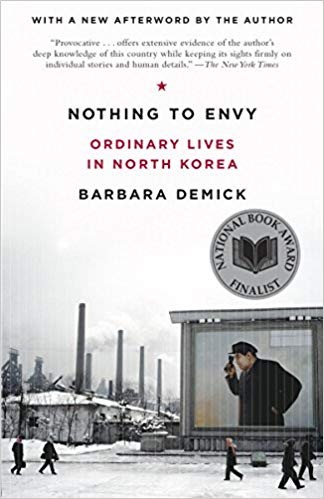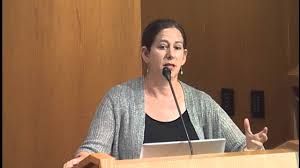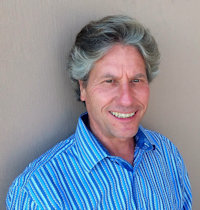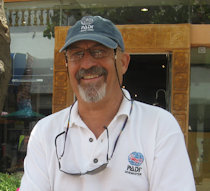Nothing to Envy: Ordinary Lives in North Korea

from amazon.com
In this landmark addition to the literature of totalitarianism, award-winning journalist Barbara Demick follows the lives of six North Korean citizens over fifteen years—a chaotic period that saw the death of Kim Il-sung, the rise to power of his son Kim Jong-il (the father of Kim Jong-un), and a devastating famine that killed one-fifth of the population.
Demick brings to life what it means to be living under the most repressive regime today—an Orwellian world that is by choice not connected to the Internet, where displays of affection are punished, informants are rewarded, and an offhand remark can send a person to the gulag for life. She takes us deep inside the country, beyond the reach of government censors, and through meticulous and sensitive reporting we see her subjects fall in love, raise families, nurture ambitions, and struggle for survival. One by one, we witness their profound, life-altering disillusionment with the government and their realization that, rather than providing them with lives of abundance, their country has betrayed them.
https://www.amazon.com/Nothing-Envy-Ordinary-Lives-North-ebook/dp/B002ZB26AO
Author: Barbara Demick

Barbara Demick has been interviewing North Koreans about their lives since 2001, when she moved to Seoul for the Los Angeles Times. Her reporting on North Korea won the Overseas Press Club award for human rights reporting, the Asia Society’s Osborne Eliott award and the American Academy of Diplomacy’s Arthur Ross Award.
Before joining the Los Angeles Times, she was with the Philadelphia Inquirer as a foreign correspondent in the Middle East and Eastern Europe. She lived in Sarajevo during the war in Bosnia and wrote a book about daily life there. Her Sarajevo reporting won the George Polk Award, the Robert F. Kennedy Award and was a finalist for the Pulitzer.
Demick grew up in Ridgewood, N.J. She is currently the Los Angeles Times’ bureau chief in Beijing.
Reviewed by: John Stokdijk

North Korea is in the news a lot these days but I do not know very much about the country. Therefore, I welcomed the opportunity to read Nothing to Envy: Ordinary Lives in North Korea by Barbara Demick when the Ajijic Book Club selected it for discussion at its August, 2019 meeting. I had never heard of this book and probably would never have found it on my own.
The book is professionally written by a well credentialed author. Barbara Demick is a journalist who moved to Seoul, South Korea in 2001 and subsequently made several trips to North Korea. In South Korea, she began to talk to North Koreans who had escaped the misery of their homeland. The book is based on seven years of those interviews. Nothing to Envy tells the stories of six of those North Koreans.
Mrs. Song and her daughter Oak-hee, Kim Ji-eun, Mi-ran, Jun-sang and Kim Hyuck are real people. Their circumstances and personalities differ greatly from each other in spite of all living in an extremely controlled environment. I could identify with Jun-sang, a sensitive male who loved to read books.
Seeing the modern history of North Korea by the impact on the lives of these people was an excellent introduction to this country. But this is a book about suffering in one of the worst places in the world to live. It was mildly comforting to know from the start that these stories had positive outcomes, that they all got out alive.
We know from news reporting that most North Koreans live wretched lives under brutal dictators isolated from the rest of the world. But still the details are shocking. The biggest insight I gained from this book was that most human beings have an incredible will to live even while barely surviving.
North Korea faded to black in the early 1990s. With the collapse of the Soviet Union, which had propped up its old Communist ally with cheap fuel oil, North Korea’s creakily inefficient economy collapsed… North Korea is not an undeveloped country; it is a country that has fallen out of the developed world.
I did not know the role the United States played in the creation of a divided Korea. For 1300 years Korea was one free nation until Japan invaded in 1910. After WWII, the victors each carved out their sphere of influence, the Soviet Union taking the north and the US taking the south divided by an artificial border, the 38th parallel. What if the USSR and the USA had instead worked together for the good of all Koreans? But, sadly, that is not how the world works.
The people of North Korea are brainwashed by their government and they are unaware of THE BIG LIE. North Koreans believe that in 1950 the south, supported by the Americans, invaded the north. In truth, the north invaded the south. But to this day the North Koreans live in unjustified fear and hatred of the United States. It is easy to understand why North Korea is one of the few places in the world with no internet for ordinary people.
Here is one insightful and powerful but disturbing passage from Nothing to Envy:
… Mi-ran … often felt sick over what she did and didn’t do to help her young students. How could she have eaten so well herself when they were starving? It is axiomatic that one death is a tragedy, a thousand is a statistic. So it was for Mi-ran. What she didn’t realize is that her indifference was an acquired survival skill. In order to get through the 1990s alive, one had to suppress any impulse to share food. To avoid going insane, one had to learn to stop caring. In time, Mi-ran would learn how to walk around a dead body on the street without paying much notice. She could pass a five-year-old on the verge of death without feeling obliged to help. If she wasn’t going to share her food with her favorite pupil, she certainly wasn’t going to help a perfect stranger.
Our survival instinct makes us all very selfish. As I read about Mi-ran, I reflected on my own ability to maximize my personal wellbeing as daily I walk past poverty here in Mexico. This is not something I am proud of but most of the time I can rationalize my own behavior.
Chapter 9 has a disturbing title with another blunt truth: THE GOOD DIE FIRST.
Yet another gratuitous cruelty: the killer (famine) targets the most innocent, the people who would never steal food, lie, cheat, break the law, or betray a friend.
The final section of the book, Epilogue: The Third Generation, discusses the ray of hope when Kim Jong-un took power after the death of his father. He was young and educated in Switzerland, surely life would get better. But no, like his father and his grandfather, he is a brutal dictator and nuclear weapons are more important to him than the lives of ordinary North Koreans.
Once again I am grateful that I was born a white male, born at the right time in the right place to have a good life.
There is a love story in Nothing to Envy: Ordinary Lives in North Korea. About that, I will only say that this is a work of nonfiction and that “happily ever after” is more often found in books of fiction. But it is an interesting story in an interesting book..
Reviewed by: Karl Homann

PERSONAL PERSPECTIVE
Nothing
to Envy: Ordinary Lives in North Korea
by Barbara Demick
"War does not determine who is right - only who is left."
Bertrand Russell
While the personal stories of Nothing to Envy are horrific, I read the book in the wider context of “geopolitics”, a term which today is widely used as a loose synonym for international politics.
Though somewhat dated with a publication date of 2009 and a description of 1990s events, Nothing to Envy is vivid testimony to the predictable fallout and terrible hardship for ordinary people, when a super power, though under the disguise of a manipulated UN declaration, meddles in the affairs of another nation, and bombs the shit out of it so that there is nothing left other than misery, starvation and death.
Even in the pre-Korean War period, the mass call for an independent and unified Korean government was bloodily repressed by Rhee's South Korean forces, which were overseen by the US Army. This pre-Korean War violence saw the deaths of 100,000 people, most of them civilians.
In 2010, Colum Lynch of Foreign Policy Magazine criticized the United Nations Security Council Resolution 82 of June 25, 1950 regarding North Korea’s invasion of South Korea as one of the ten…
worst UN resolutions in its history.
And according to the [Korean] war's highest-ranking US POW, Major General William F. Dean …
Most of North Korean cities and villages he saw were either rubble or snow-covered wasteland.
North Korean factories, schools, hospitals, and government offices were forced to move underground, and air defenses were "non-existent."
“By the end of the campaign, US bombers had difficulty in finding targets and were reduced to bombing footbridges or jettisoning their bombs into the sea.”
In this spirit, General Douglas MacArthur described the Pacific as an “Anglo-Saxon lake.”
After the devastation of North Korea by 1953, two years later in Vietnam, the US [at first supported] …
the French Empire in a colonial counterinsurgency. Influenced by the Grand Area policy, [but] the US eventually assumed total responsibility for the war against the Vietnamese communists, including suppressing nationwide elections when it appeared that Ho Chi Minh would win.
The ensuing battles led to large-scale antipersonnel operations in South Vietnam, North Vietnam, Laos, and Cambodia, leading Martin Luther King to call the American government
“the greatest purveyor of violence in the world today.”
Nevertheless, the only country that escaped this vicious cycle of “imperial internationalism” was Vietnam, which kicked the invaders’ asses, who, after the fall of Saigon on the 30th of April 1975 and after 20 years of pure devastation, fled the country. Vietnam reunited as the Socialist Republic of Vietnam and has since become one of the more visited countries in South East Asia, and its 95 million people live in peace and relative prosperity.
Well, those were he 1950s and 1060s, right?
No, this insane approach to world politics continues in the 21th century in Somalia, Yemen, Afghanistan, Iraq, Libya, Syria, Donbass (Eastern Ukraine) and other locations around the world.
Barbara Demick comments at one point that the indoctrination of the North Korean population by their regime was subject to ridicule by the international community, but so is the ongoing propaganda of the superpower that invaded and devastated the country.
A Guardian article of August 8. 2017 describes the experience of Suzy Hansen, age 30, left the US for Istanbul and had to unlearn the myth of “American” innocence.
She writes, what “if we discover that our identity as we understood it had been a myth.”
American exceptionalism did not only define the US as a special nation among lesser nations; it also demanded that all Americans believe they, too, were somehow superior to others.
American exceptionalism had declared my country unique in the world, the one truly free and modern country, and instead of ever considering that that exceptionalism was no different from any other country’s nationalistic propaganda, I had internalised this belief.
The same thoughts occurred to me, as I read about the unrelenting distorted propaganda of the Democratic People's Republic of Korea. It also reminded me of Nazi Germany where I was born.
Hansen continues to describe her demystification:
“So, we don’t know there is anything wrong in believing our country is the greatest on earth. The whole thing sort of convinces you that a collective consciousness in the world came to that very conclusion.”
“Wow,” a friend once replied. “How strange. That is a very quiet kind of fascism, isn’t it?”
During the time period dealt with in Demick’s book, the supreme leaders of North Korea, Kim Il-sung and his son Kim Jong-il were considered as “gods”.
A recent book by Stephen E. Strang God and Donald Trump received the following endorsement by the Senior Pastor of the First Baptist Church in Dallas Texas:
a well-written, much-needed look at the undeniable hand of God working in our nation’s most recent presidential election.
The book even claims, that Christian leaders prophesied before the election that God had raised up Trump to lead the nation through a time of crisis.
****
My own post-war experience
The experiences my family had after the collapse of Nazi Germany were not unlike those of the North Koreans featured in Nothing to Envy.

- Doing laundry amid the ruins in post-war Germany
Up at five in the morning to scour the nearby woods for any dry branches that may have fallen to the ground during the night. Six o’clock would have been too late because there would not have been a splinter of wood left.
Digging dandelions for food. Searching for mushrooms which thrived best in the middle of a pie of cow shit. Walking up and down harvested fields in the late summer heat with the stubbles turning our ankles bloody, in search of any ear of corn that may have been left behind, which after a week or so perhaps yielded a kilo of flower at the local mill… And, yes, we had the “night soil” experience also, because there was no running water or indoor toilets in the apartment under the roof of a small farm.
In a speech on May 8th, 1945, British Field Marshall Bernard Montgomery described the situation that Germany faced like this:
"'Displaced Persons’ were roaming about the country, often looting as they went. Transportation and communication services had ceased to function. Agriculture and industry were largely at a standstill. Food was scarce and there was a serious risk of famine and disease…”
There were displaced people everywhere.
It is believed that hundreds of thousands of Germans perished from famine and famine-related conditions between 1945 and 1949.


